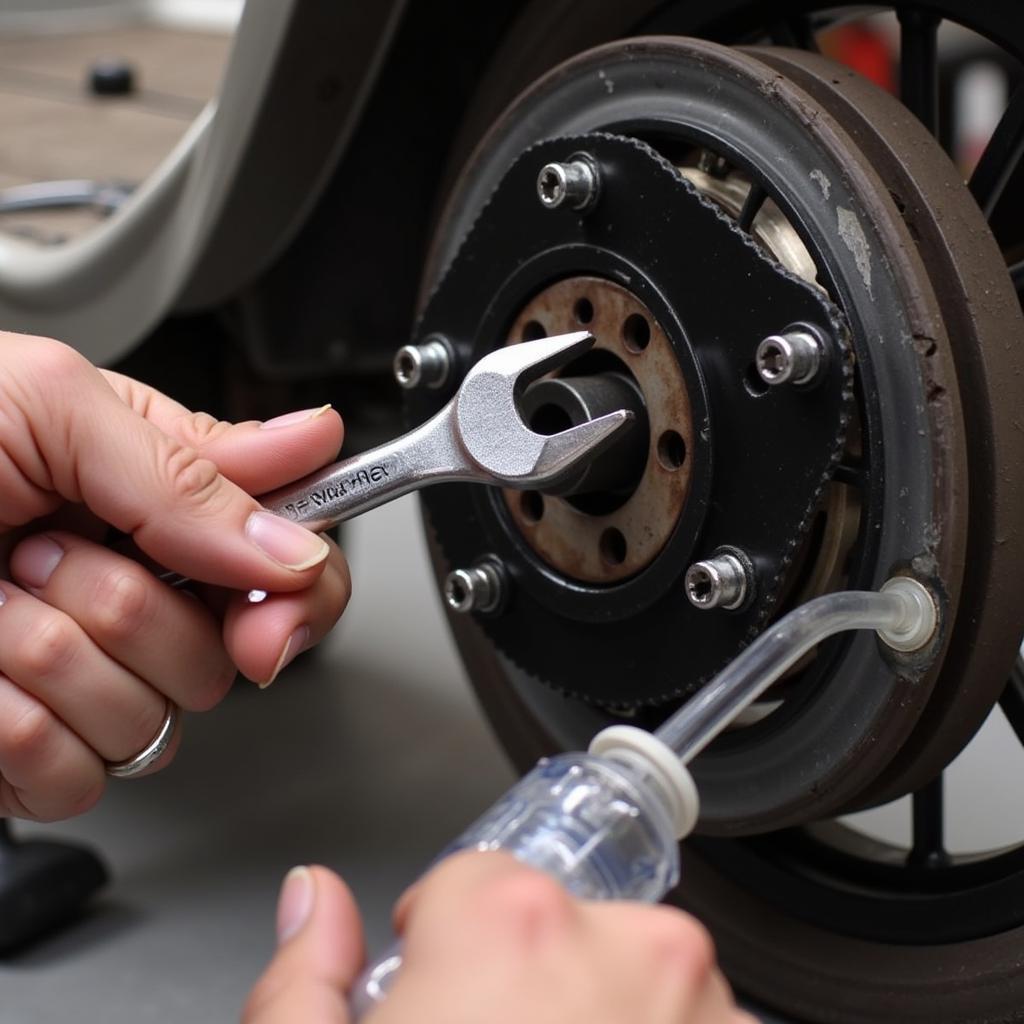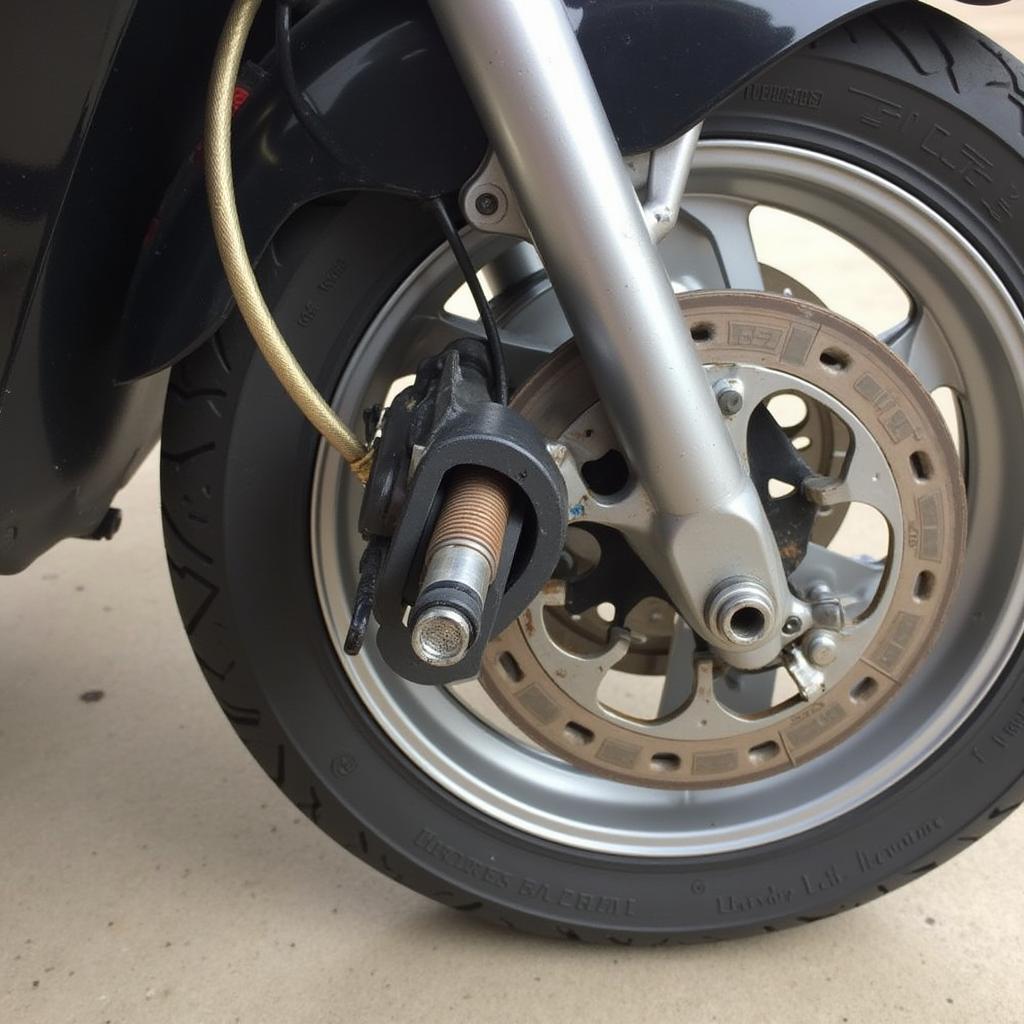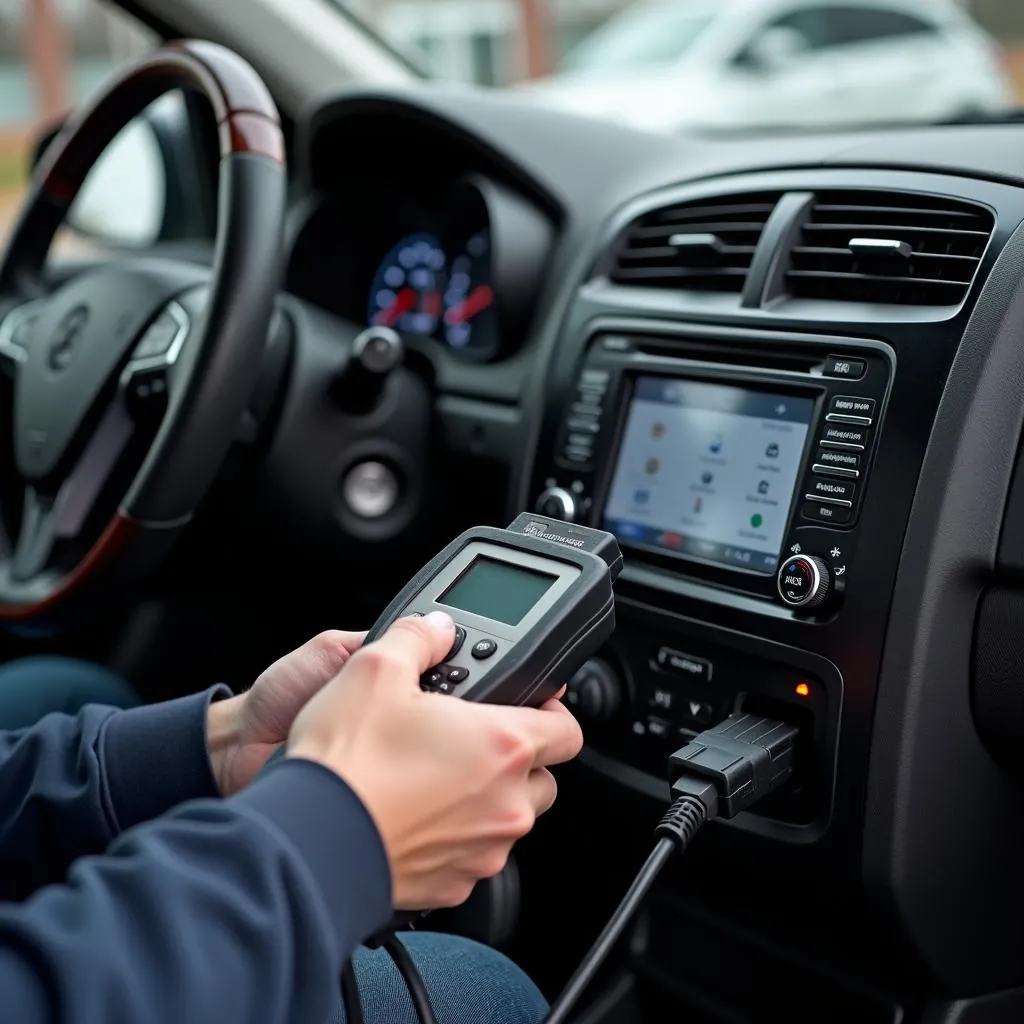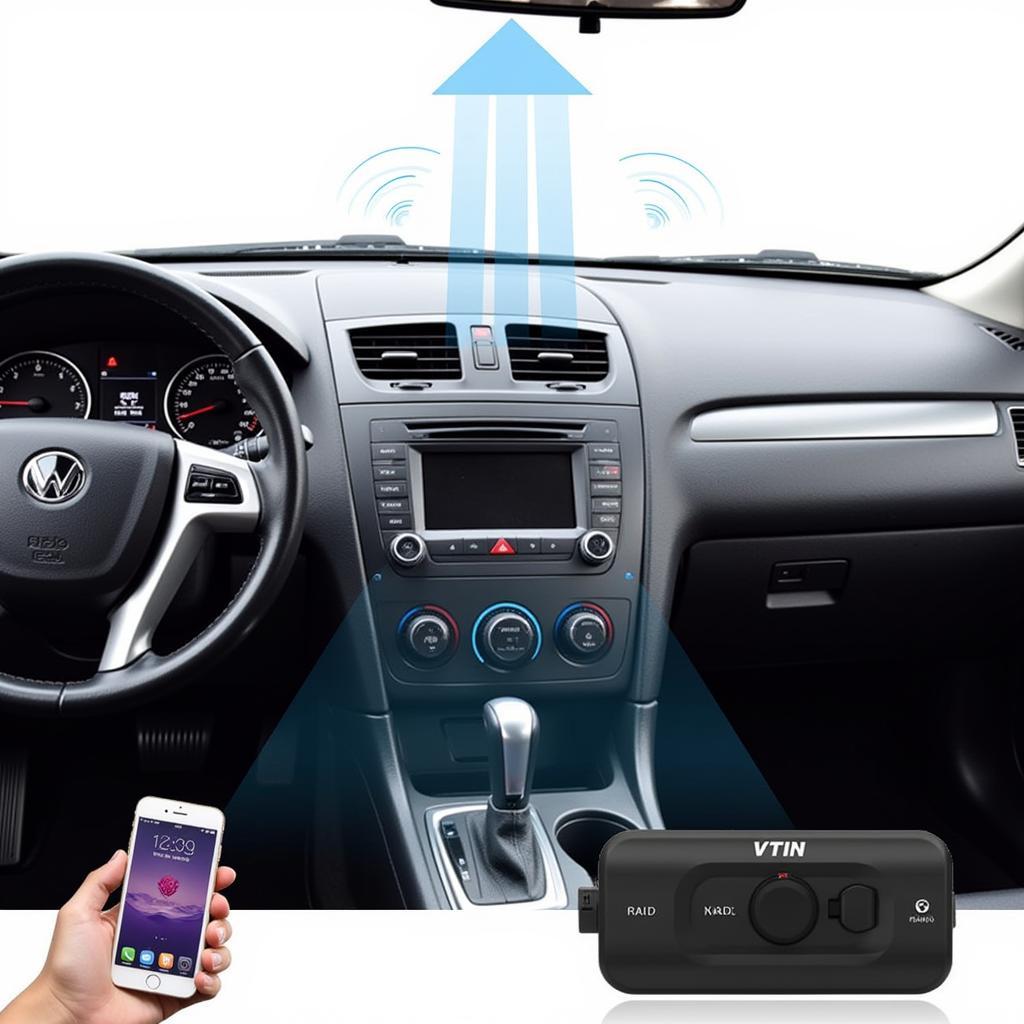Experiencing issues with your Warner scooter brake? You’re not alone. Brake problems are a common issue with scooters, and they can be incredibly frustrating. Fortunately, many of these issues can be diagnosed and repaired with some basic knowledge. This guide will walk you through common Warner scooter brake problems and offer solutions to get you safely back on the road.
Understanding Your Warner Scooter Brake System
Before diving into troubleshooting, it’s crucial to have a basic understanding of how your Warner scooter brake system works. Most Warner scooters use either drum brakes or disc brakes:
- Drum brakes: These are housed within the wheel hub and use internal brake shoes that press against a drum to slow down the scooter.
- Disc brakes: These use a caliper to squeeze brake pads against a disc (rotor) attached to the wheel.
Knowing which type of brake system your Warner scooter has is essential for effective troubleshooting. Refer to your owner’s manual or check the manufacturer’s website if you’re unsure.
Common Warner Scooter Brake Problems and Solutions
Here are some of the most common brake problems encountered by Warner scooter owners:
1. Scooter Brake Lever Feels Spongy
Possible Causes:
- Air in the brake line: Air bubbles can compress, resulting in a soft or spongy lever feel. This is more common with hydraulic disc brakes.
- Worn brake pads or shoes: Over time, these wear down and require more fluid to engage, creating a spongy feeling.
- Stretched brake cable: Cable-operated brakes can stretch, reducing their effectiveness.
Solutions:
- Bleed the brakes: This process involves removing air from the brake lines.
 Bleeding a Scooter Brake
Bleeding a Scooter Brake - Replace worn brake pads or shoes: Inspect your brake pads or shoes for wear. If they are below the minimum thickness, replace them immediately.
- Adjust or replace the brake cable: If your scooter has cable-operated brakes, check for cable tension and adjust or replace as needed.
2. Scooter Brakes are Noisy
Possible Causes:
- Worn brake pads or shoes: A squealing or grinding noise often indicates excessively worn pads or shoes.
- Glazed brake pads or shoes: Overheating can cause the brake material to harden, creating a glazed surface that makes noise.
- Dirty brake components: Dirt, debris, or brake dust buildup can also cause noise.
Solutions:
- Replace worn brake pads or shoes: As mentioned earlier, worn pads or shoes should be replaced promptly.
- Resurface or replace glazed pads or shoes: Lightly sanding the brake pad surface can help, but replacement is often the best solution.
- Clean brake components: Regularly clean your brake calipers, discs, drums, and pads with a brake cleaner and a brush to remove dirt and debris.
3. Scooter Brakes are Pulling to One Side
Possible Causes:
- Uneven brake pad or shoe wear: One side might be wearing faster than the other, causing uneven braking force.
- Stuck brake caliper piston: A seized piston in a disc brake system can prevent the caliper from applying even pressure.
- Contaminated brake pads or shoes: Oil, grease, or brake fluid on the brake material can reduce friction and cause pulling.
Solutions:
- Check and replace unevenly worn brake pads or shoes: Ensure both sides are wearing evenly.
- Inspect and lubricate caliper pistons: Clean and lubricate the caliper pistons to ensure smooth movement.
 Inspecting the Caliper
Inspecting the Caliper - Clean or replace contaminated brake components: Clean thoroughly or replace affected parts with new ones.
4. Scooter Brakes Feel Weak or Ineffective
Possible Causes:
- Air in the brake line (hydraulic brakes): Similar to a spongy lever, air in the lines reduces braking force.
- Worn brake pads or shoes: Thin brake pads or shoes can’t generate sufficient friction.
- Overheated brakes: Excessive heat can cause brake fade, where the brakes lose effectiveness.
Solutions:
- Bleed the brake system: Remove any air bubbles from the lines.
- Replace worn brake pads or shoes.
- Allow brakes to cool down: If you’ve been braking hard, let the brakes cool before continuing to ride.
Remote Diagnostics and Software Solutions for Warner Scooter Brakes
In the age of connected vehicles, remote diagnostics and software solutions are increasingly playing a role in identifying and resolving brake issues, even in scooters.
Here’s how it works:
- Data Transmission: Some Warner scooter models are equipped with sensors and connectivity features that transmit data about your scooter’s performance, including brake system health, to the manufacturer or authorized service providers.
- Remote Analysis: This data can be remotely analyzed to detect potential brake problems before they become major issues.
- Software Updates: In certain cases, software updates can be remotely installed to calibrate and optimize brake system performance.
- Preventative Maintenance: Remote diagnostics can alert you to upcoming scheduled maintenance needs, like brake pad replacements, ensuring optimal brake performance.
While not all Warner scooter models offer these advanced features yet, they are becoming more common, representing the future of scooter maintenance and repair.
Expert Insight
“Regular brake inspection is crucial for scooter safety,” says [Expert Name], a certified scooter mechanic with over 10 years of experience. “Don’t wait for problems to arise. By addressing minor issues early on, you can prevent more serious and costly repairs down the line.”
Conclusion
Your Warner scooter’s brakes are critical for your safety. By understanding common brake problems and their solutions, you can keep your scooter in top condition. Remember, if you’re uncomfortable diagnosing or repairing brake issues yourself, always seek assistance from a qualified mechanic or authorized Warner service center.
FAQs
1. How often should I check my Warner scooter brakes?
It’s best practice to check your scooter brakes before every ride. Look for signs of wear, damage, or any abnormalities.
2. Can I use any brake fluid for my Warner scooter?
No, it’s essential to use the type of brake fluid specified in your scooter’s owner’s manual. Using the incorrect fluid can damage your brake system.
3. Why are my new brake pads making noise?
New brake pads might take some time to “bed in” and conform to the rotor or drum. If the noise persists after a reasonable break-in period, consult with a mechanic.
4. My Warner scooter has regenerative braking. Do I still need to maintain the regular brakes?
Yes, even with regenerative braking, your traditional brake system is still essential for slowing down and coming to a complete stop. Regular maintenance is still crucial.
5. How much does it cost to replace Warner scooter brakes?
The cost of brake replacement varies depending on the type of brakes, the parts required, and labor costs. Contact a Warner scooter dealer or mechanic for an accurate quote.


